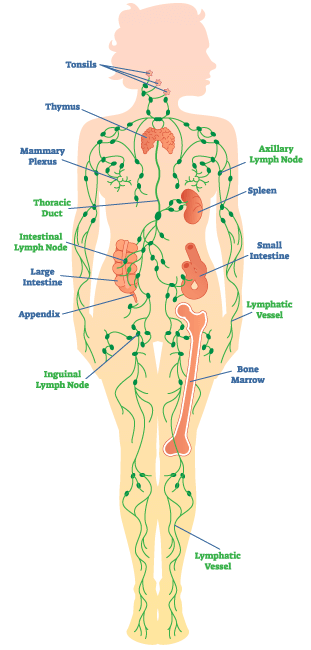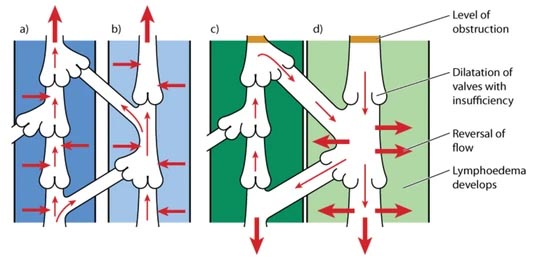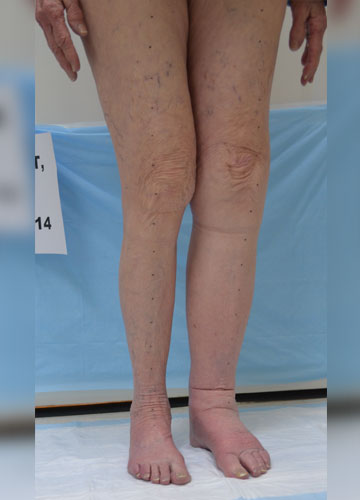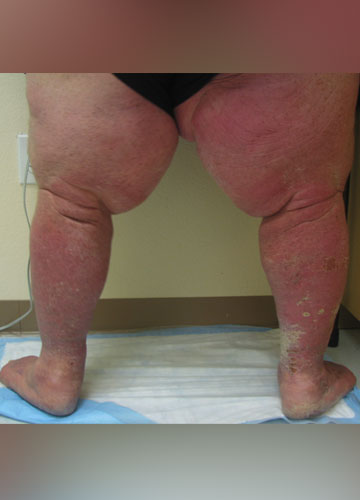Lymphedema Information


What is Lymphedema?
Lymphedema is an accumulation of lymphatic fluid in the interstitial tissue that causes swelling, most often in the arm(s) and/or leg(s), and occasionally other parts of the body. Lymphedema develops when lymphatic vessels are missing or impaired (primary), or when lymph vessels are damaged or lymph nodes are removed (secondary).

Signs or Symptoms of Lymphedema
- Swelling
- Feeling of fullness or heaviness in a specific part of your body
- Changes in skin color, texture or tightness
- Aching, tingling, numbness, or pain in a specific area
- Decreased flexibility or mobility in or around the affected area
- Clothes or shoes fitting tightly in one specific area, despite not having gained weight. Ring, watch or bracelet fits unusually tight.
If you notice persistant swelling, it is very important to talk to your doctor. When Lymphedema is detected in earlier stages, therapeutic management is more likely to be effective in improving outcomes and quality of life.
When left untreated, protein-rich fluid continues to accumulate, leading to an increase of swelling with a hardening or fibrosis of the tissue that can lead to a loss of function, skin breakdown, chronic infection, chronic wounds, and irreversible complications.




